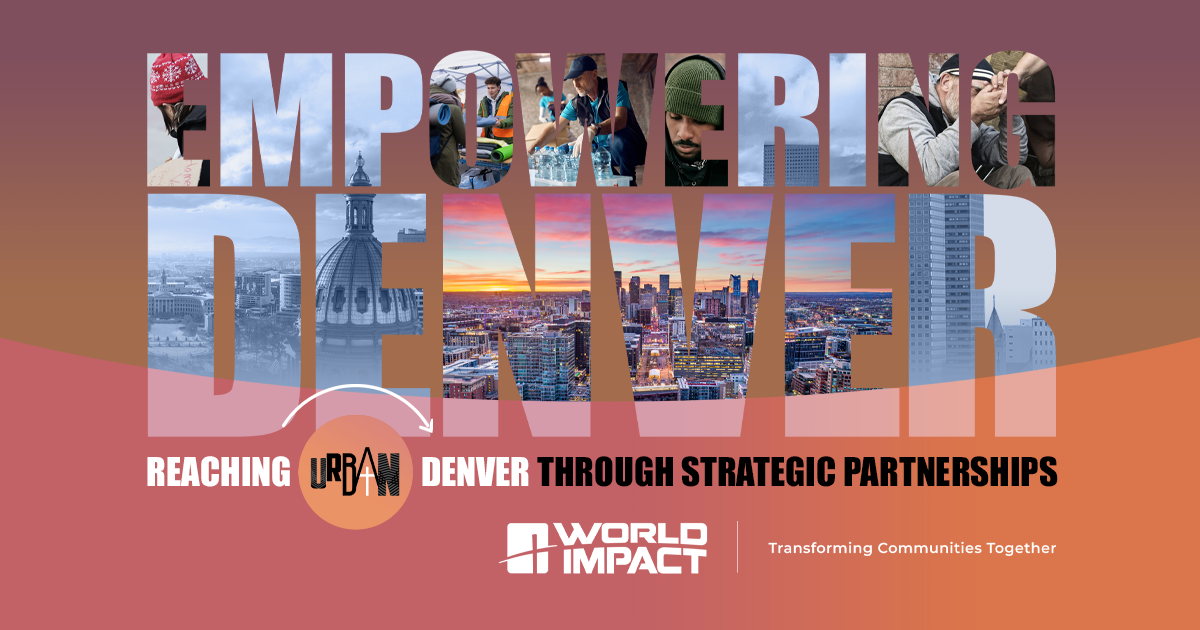There are three main mindsets of poverty work. Exploitative happens when the mindset is to rescue people from poverty. A better way comes in the form of ethical poverty work where our mindset shifts from rescue to advocacy towards empowerment. The best poverty work is redemptive, which is a shift to creative restoration through sacrifice in our life and work.
Redemptive and ethical poverty work at times overlap and look the same. But there are three distinctives that make the redemptive different from the ethical. For starters, the redemptive is basing our advocacy in the understanding that we all need rescuing because we are fallen human beings. We are just as broken, sinful, and weak as those who find themselves in poverty. It is a true understanding of “but for the grace of God go I.”
Second, we put more faith in the supernatural work of God than the rearrangement of human systemic power. We work by faith not by sight. God is bigger than any circumstance and the One who does the rescuing. We play our role in the process of redemption in humility, prepared to offer forgiveness on the other side of the inevitable disappointment that we encounter while doing our work.
Third, the goal of the redemptive poverty worker is to play a role in making disciples among those who live in the condition of poverty. This is the standard that Christ set while issuing The Great Commission. We may end up helping them overcome their situation, but that is not the endgame. I know of nothing more empowering than making disciples.
Without these markers, you end up with ethical poverty work based in purely human effort from a sense of moral superiority. Over time, the chances are high that the worker becomes cynical about those in poverty. And before you know it, the worker has left the ethical and slid back into exploitation. That’s why we see so many workers and the ethical systems they set up stuck in bureaucracy and cynicism.
What we do with our time, talent, and treasure is a direct reflection of our spiritual condition. Wealth is a good thing, but if we are not careful it will seduce us. There is such a thing as having too much and too little, and God wants everyone to have enough to flourish. Therefore, redemptive poverty work is about being as generous as our situation allows towards those in poverty. The giving away of ourselves and our money is the redemptive way to avoid the seductive power of wealth that often leads us away from God’s priorities.
Peter and John’s meeting with the temple beggar in Acts 3:1-10 is a picture of redemptive poverty work. The beggar wanted money, yet Peter through his relationship with God gave the man what he really needed—the use of his legs. The healing gave the man the opportunity to meet his material needs through employment, no longer having to beg. At the same time, the beggar rejoices because he is in a better place because of the faith and obedience of Peter and starts to worship God right alongside him. What does this look like in the 21st Century?
If we are Christian, we all share the responsibility of practicing the first and second greatest commandments towards the poor. In other words, there isn't an option to do nothing. However, redemptive poverty work is not a zero-sum game. We should not make the mistake of thinking that unless we center our entire lives around poverty work than we are not valuable to the cause. All levels of commitment are legitimate and needed.
A good friend of mine sponsored a church basketball team nearly 20 years ago for an at-risk group of boys. I jokingly call it the eternal basketball team because even though the team was discontinued long ago, and the boys are now men, he still coaches some of them. Not for basketball but for life.
Financially he is well off and has a fund set up strictly for them. Over the years, he has paid for vocational training, provided zero interest loans to buy cars, even served as an “angel” investor for one who started a business. If they are trying to make a better life, he is there to help. And it is all done in the context of discipleship.
A professor at a local Christian college worked with me around a vision to start a scholarship fund for kids who maybe would not have gone otherwise otherwise. These were not the kids who every university fought over. Rather, these were kids who had academic potential but because of context did not reach it in high school. Now, many of them are college graduates, most of them have kept the faith, and all are productive members of society.
Of course, the highest form of redemptive poverty work is to pursue it as a vocation, i.e. a “calling.” This is a second commitment we make to God beyond our salvation. It is a vow to dedicate our talents and giftings to serving the poor on a full-time basis, regardless of the sacrifice involved.
Certain traditions of the Church have a strong practice of civil disobedience for the sake of the poor and oppressed. I define civil disobedience as public, nonviolent acts of resistance towards institutions that misuse their power. The civil rights movement utilized public service and activism, but its backbone was the local faith communities throughout the South. It forced changes in policies, practices, and procedures to create a more just society.
Redemptive poverty workers desire more than progress and we move beyond charity. We work towards redemption of people and neighborhoods. May God be with you on your journey.

